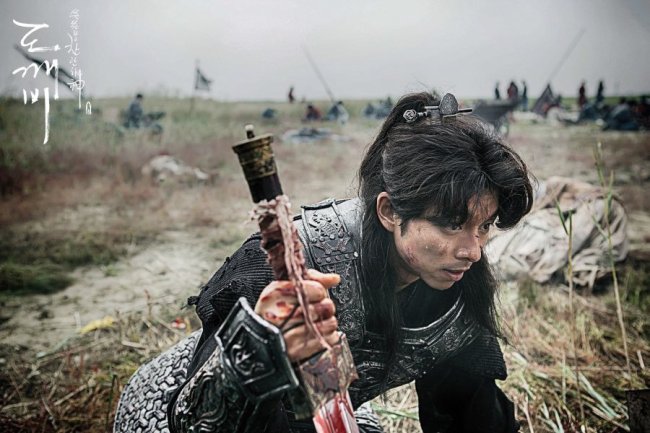Following the joint Korea-US decision to deploy THAAD battery in Korea last July, a de facto hallyu ban has been in place in China. Following is the first article in a three-part series that examines the impact of the unofficial hallyu ban on the Korean entertainment industry. --Ed.
While Beijing has reportedly been banning Korean content within China since last August, the unstoppable flow of the Korean Wave, or Hallyu, seems to be seeping into the country through online channels.
On a greater scale, drama production companies and Korean celebrities have incurred considerable losses due to China’s restrictions. Approval to air the much-anticipated TV series “Saimdang, Memoir of Colors” in China is still pending, while the series has already begun airing in Korea. Actor Song Joong-ki’s voice was removed from a TV advertisement in China, while actress Yoo In-na left the cast of Chinese drama series “Love Through a Millennium 2.”
But it seems the unofficial circulation of content has proven less easy to control.
Though unable to air on Chinese television, pirated files of the hit series “Guardian: The Lonely and Great God,” which aired only on Korean television from Dec. 2, 2016 to Jan. 21, complete with Chinese subtitles, are circulating the internet, according to reports.
Clips of “The Legend of the Blue Sea,” another popular TV drama that aired only in Korea after the reported ban, are also being shared, while illegal streaming sites bearing the shows have popped up.
No numbers are available on the views or downloads via these underground channels, but other visible figures attest to the unrelenting spread of Korean content.
 |
A scene from “Guardian: The Lonely and Great God” (tvN) |
Gong Yoo, who starred in “Guardian,” became the most searched personality on Chinese social media network Weibo on Jan. 22 and 23. The series also ranked among the most searched terms on Chinese search engine Baidu.
Over 420 million posts bearing the hashtag for Gong Yoo have been uploaded on Weibo, while songs from the series’ original soundtrack have reached over 8.8 million downloads on China’s largest music platform QQ Music.
Taiwan’s United Daily News reported last Wednesday that “Guardian” had been the most watched drama series during the Chinese New Year holidays.
“There’s a need to probe various channels, and not simply rely on the existing mainstream channels,” said Kim Hyun-kyung, head of the China Contents Lab. Kim also pointed out that regulation of content -- both local and foreign -- is nothing new in China.
Though the stars are not able to monetize their success in China while the ban is still in place, their popularity has led to a surge in tourism of areas featured in the hit drama series.
Chinese tourists have been flooding to Duksung Women’s University and to Incheon’s Jumunjin Beach, where “Guardian” was filmed, reports say.
 |
A scene from “The Legend of the Blue Sea” (SBS) |
Korean celebrities’ continued popularity also showed through in “Power Star,” a list ranking the popularity of foreign celebrities within China. In January’s list, Sehun and Baekhyun of EXO and actors Kim Soo-hyun, Lee Jong-suk and Song Joong-ki ranked as the top five most popular male stars.
As for female celebrities, f(x)’s Krystal, Girls’ Generation’s Yoona, solo singer IU and actresses Song Hye-kyo and Song Ji-hyo took the top spots.
The reported ban additionally seems to be loosening on films coproduced by Korean and Chinese companies. “Beautiful Accident,” jointly produced by Chinese Studio Huayi Brothers and South Korean company Showbox, has been confirmed to open in Chinese theaters on March 17. Though Korean actors are not included among the cast, which features Chinese stars Chen Kun and Wang Jingchun and Taiwanese actress Gwei Lun-mei, Korean boy band EXO performs the theme song.
By Rumy Doo (
doo@heraldcorp.com)









